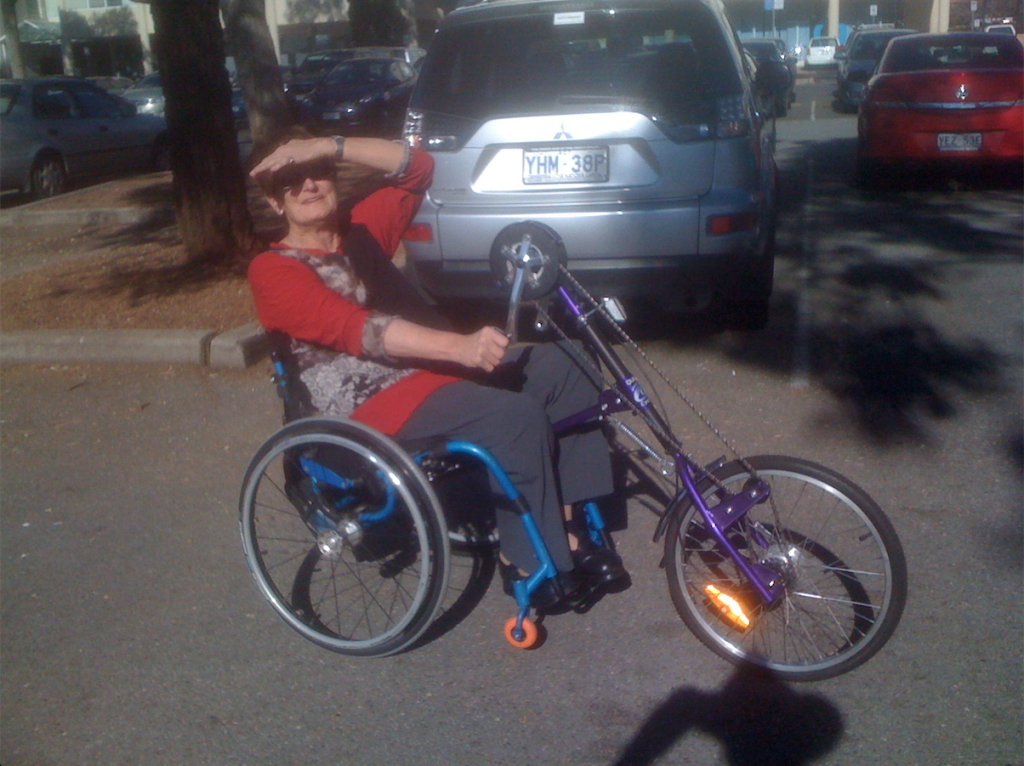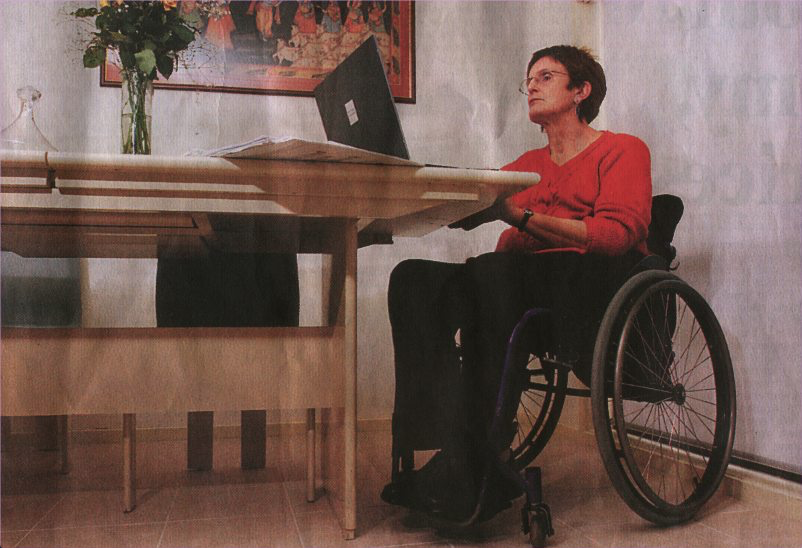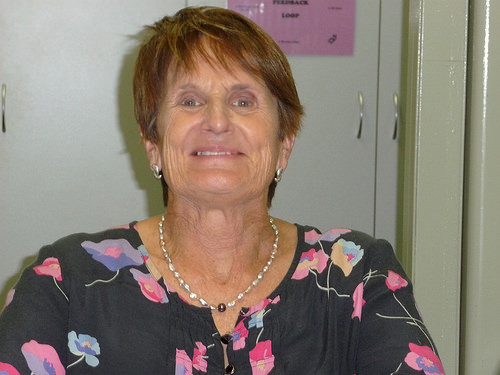Good leaders build more leaders. Sue Salthouse’s legacy was building leaders. She was associated with many organisations, sat on numerous boards and committees, was passionate about multiple causes; however, throughout that work Sue was developing others to be confident and effective social change makers.
Sue leaves an extensive network of women with disabilities who now carry the work forward that she was a part of. She never saw herself as working alone, or being the only one, or the catalyst. Sue was a master collaborator who drew people around her to work together on addressing the issues she was passionate about.
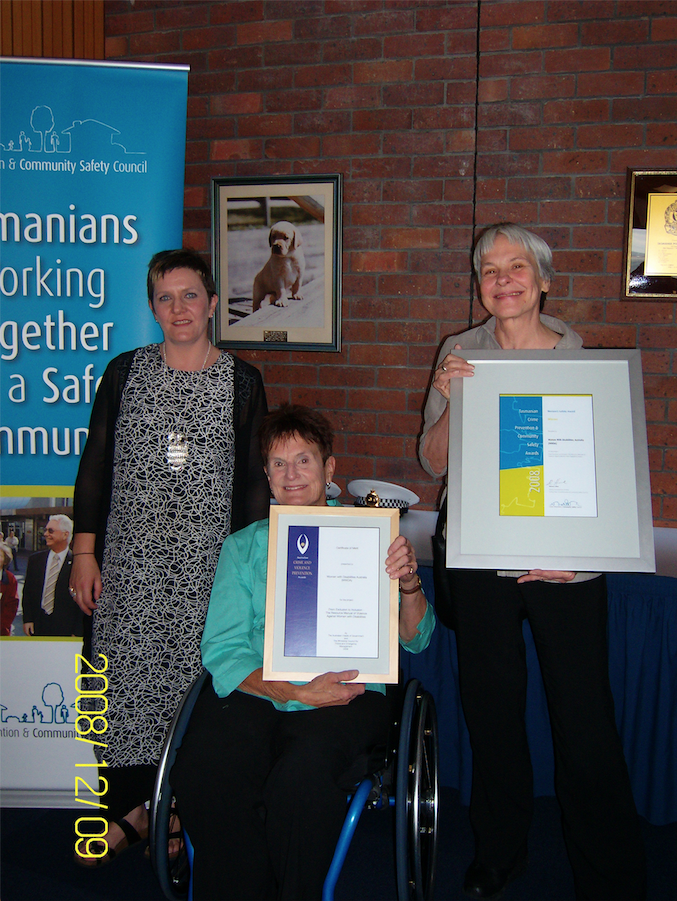
For more than two decades, Sue was a highly respected leader in the disability rights movement in Australia, particularly for women with disabilities. She also took her advocacy for and on behalf of women with disabilities to the international stage – presenting at international Conferences, at the United Nations, and working alongside our international disabled sisters in global advocacy to improve the status and the rights of all women with disabilities.
Her work with, and for, women with disabilities is widely remembered; although we must also remember her deep interest in technology and telecommunications through the Australian Communications Consumer Action Network (ACCAN), her staunch opposition to militarism including the weaponry ads at the Canberra Airport, and her long time support for refugees and asylum seekers. Sue also worked hard to minimise her environmental footprint and raised awareness of the need for everyone to do the same.
Sue’s life was one of dedication, service and commitment to others – whether that be supporting individuals through difficult times; or by mentoring young and emerging leaders; or by working for systemic change at local, national and international levels, to promote and advance the rights and freedoms of women with disabilities.
The current and former board and staff of Women with Disabilities ACT (WWDACT) gathered this week to remember Sue with words like: compassionate, graceful, strong, fearsome, funny, smart, generous, encouraging, kind, always interested, determined, and a visionary realist.
One word we would never use about Sue is tireless. Women with disabilities get tired. We are often fatigued, lacking sleep, operating on zero, and Sue also lived that life. When Sue was killed in an accident last Monday, she was riding her beloved nippy, a wheelchair modified motorcycle. The nippy gave Sue enormous freedom to attend more meetings in a day, to travel to multiple locations, and to get things done more effectively. If she didn’t have to expend valuable energy transferring in and out of her car with her wheelchair, she had more capacity to do her work and to attend the many commitments that were increasingly asked of her.
Sue is seen as a nurturing mentor who encouraged many new activists to take their first steps into the frontline and was there to back them as they grew more confident. She had taken this path herself 25 years ago and continued to support others along it for the rest of her life. After Sue’s accident and a long period of rehabilitation, she had lost the confidence to return to her teaching career and decided she would just “gracefully retire”. Around this time, she met Carolyn Frohmader, CEO of Women with Disabilities Australia (WWDA). Carolyn recalls meeting Sue, and after a coffee and chat, Carolyn suggested that WWDA and Sue were made for each other.
She was the epitome of the phrase ‘the personal is political’ – taking the individual experiences of women with disabilities, and utilising collective, feminist leadership practices to interrogate the social and political structures that enable the discrimination against disabled women to flourish. Sue was not interested in playing political games. She was interested in outcomes. This seems to be a feature of many feminist activists, and Sue was a proud feminist. In 2010 she received an Edna Ryan Award for her outstanding contribution to feminist community activism. She was thrilled with this award as it was a mainstream award acknowledging her feminism not her disability.
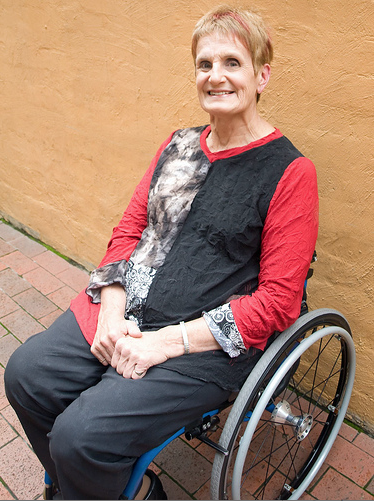
Within a few years Sue was a member of the WWDA Board and started undertaking significant amounts of representative work for the organisation. She started to write papers about the issues affecting disabled women; started attending Conferences, forums, and other events, and started speaking out publicly about the many violations of disabled women’s human rights. Her confidence grew, and she quickly realised there would be no such thing as a “graceful retirement” for her. She had found her niche and she had found her clan.
In 2009, Sue was elected to the position of WWDA President – a role she held for the next four years. Even after her term as President ended, she remained an active and passionate member, and in 2014, was awarded lifetime membership of the organisation.
Sue helped to take WWDA from a being a small organisation of women with disabilities concerned primarily with building individual confidence and self-esteem, to a highly respected national and international human rights organisation enabling and representing the collective interests of women with disabilities.
In the late 1990’s Sue joined a small Canberra based network of women with disabilities – later to become ‘Women with Disabilities ACT’ (WWDACT). The network had been established by the late Diana Palmer and Patricia Woodcroft-Lee who were soon joined by a core group of volunteer women with disabilities – including Christina Ryan, Dianne McGowan, Louise Bannister, and Sue. For many years, WWDACT operated without any core funding support, but still undertook ground-breaking and innovative work to progress the rights of women with disabilities in the ACT.
Sue became the Convenor of WWDACT, and following its incorporation in 2017, its inaugural Chairperson. Her contribution to WWDACT over 2 decades was immense. She was appointed to many ACT Government Advisory Boards and Committees, and juggled this work with the many national advisory structures she was also appointed to, including the National Disability Insurance Scheme Independent Advisory Group; the Council of Australian Governments (COAG) Advisory Panel on Reducing Violence against Women and their Children; and the Australian Communications Consumer Action Network (ACCAN).
Under Sue’s leadership WWDACT grew into an influential organisation recognised for its many innovative programs and projects and received a number of prestigious awards including the 2015 ACT Chief Minister’s Inclusion Award for Advancing Human Rights.
Sue developed a passion for using data and using it well. When Christina Ryan undertook an analysis of the gender disparity in disability service provision each year for WWDA, it was Sue who augmented this work by analysing the population cohorts in disability. Were there more men than women? Was that the reason that men were receiving services and supports at a ratio of 2:1? Sue’s work showed that women and girls with disabilities are more numerous across all population cohorts, except 0-15 years, which meant the gender disparity was more severe than first realised.
Sue was a rare activist who was often welcome in rooms where others were not. She used this attribute to best advantage, once she was in a room of power, she ensured women with disabilities were on the agenda and not forgotten.
Sue Salthouse was a passionate, independent, extraordinary woman who never gave up her fight to see women with disabilities able to enjoy our human rights on an equal basis with others. Sue was, and always will be, a much loved and valued member of Women with Disabilities Australia and Women with Disabilities ACT and she can rest well in the knowledge that these two organisations will always be a part of her legacy.
